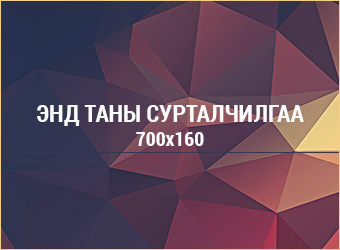Article
Taking an “Inventive Step” Toward International Standards

5 min
The Draft Law on Patents, part of proposed reforms to the current Patent Law put forth by the Justice Ministry, suggests many progressive changes towards the worldwide common standards set by the Patent Cooperation Treaty (PCT), a multilateral treaty of 152 countries including Mongolia. It is still doubtful whether the Draft Law provides for a definitive answer to the question of “inventive step”, one of the substantial requirements for issuing a patent.
Traditional interpretation of patentability
In Mongolia, the state has been rewarding inventors for improvements in manufacturing processes and technical functions since 1944. The ministerial regulations of 1960 and 1970 included a definition of invention, as well as requirements for monetary rewards to the inventor. The idea of a patent—that is, the private property right to exclude others from making, using, selling, or importing said invention—was introduced by the Civil Law of 1963. Back then, the socialist state owned and operated giant factories. In this system, the state economy struggled with issues of efficiency, productivity, quality, and revenue. Consequently, the state encouraged and rewarded inventors for solving these challenges. An inventor was rewarded for devising an invention that was novel and advantageous to the needs of the state factories through the increase in efficiency, or productivity, or what have you. However, the “inventive step” concept that is today one of the main substantial requirements for patentability of an invention according to PCT was unknown and inapplicable.
Patent laws since 1990s
The patent examination praxis of the Intellectual Property Office (IPO) of Mongolia started allowing double standards on patentability of inventions when Mongolia joined the PCT in 1991. On the one hand, the IPO would accept the International Preliminary Search Report and the International Preliminary Examination Report under the PCT as foundations for issuing a patent in the national phase of the PCT application procedure. But the IPO also followed the traditional interpretation of patentability when it came to national patent applications that were filed directly to the IPO (which were mostly applications of Mongolian citizens).
The Draft Patent Law
Article 5.4 of the Draft Law states that an invention shall be considered as “containing the level of invention” if it possesses a “distinctively advantageous quality” when compared to the prior art “within the appropriate knowledge” of a person skilled in that art. The term “containing the level of invention” should therefore correspond to the term “inventive step” according to PCT as it is the case in the current law. New is the part of the text that mentions “compared with the prior art within the appropriate knowledge of a person skilled in the art.” This formulation is a bit closer to the PCT than the current Patent Law. “Distinctively advantageous quality”[1] could, however, be interpreted either according to PCT or to the traditional notion that does not require an “inventive step”, as defined in the PCT.
Outlook
The application of high PCT standards is not easy to implement in the Mongolian day-to-day patent examination praxis. But this does not mean that the patentability requirements should be lowered according to the “old” notion. Striving to overcome the aforementioned double standards would create legal certainty and justification for patents issued by the IPO that are essential to patent enforcement. Consequently, it would be best if Art. 5.4 of the Draft Law is formulated in a way that the word “advantageous quality” does not appear in the legal definition. Moreover, integrating the term “not obvious to the skilled person (“илэрхий бус”)” as defined in Art. 33 (3) of PCT into the text of Art. 5.4 of the Draft Law is recommended.[2]
[1] «илэрхий ялгарах давуу шинж чанартай»
[2] «Шинэ бүтээлийн шийдлийг патентын мэдүүлгийн анхдагч огноо, эсхүл давамгайлах огнооноос өмнөх техникийн түвшинтэй харьцуулахад холбогдох мэргэжлийн хүний зохих мэдлэгийн хүрээнд илэрхий бус байвал»
September 2019
Dr Uyanga Delger, attorney-at-law
Like the article?
Comments (0)
Upvote
0 people (0%)
Түдгэлзсэн
0 people (0%)
Дэмжээгүй
0 people (0%)










 @
jargaldefacto
@
jargaldefacto 
 @
jariunaa1
@
jariunaa1 
